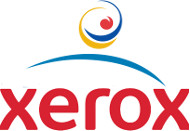Article from: www.thenewspaper.com/news/41/4117.asp
6/4/2013
Canada: City To Pay $200k For Photo Radar Propaganda Campaign
Winnipeg, Canada to spend $200,000 for publicity campaign to defend use of automated ticketing machines.
 City leaders in Winnipeg, Canada are afraid photo radar opponents are winning the debate over the effectiveness of automated enforcement. The city has put a $200,000 contract out for bid for any company that can come up with a three-year plan to boost the public's perception of speed cameras. Proposals are due by June 21.
City leaders in Winnipeg, Canada are afraid photo radar opponents are winning the debate over the effectiveness of automated enforcement. The city has put a $200,000 contract out for bid for any company that can come up with a three-year plan to boost the public's perception of speed cameras. Proposals are due by June 21.
"The bidder shall state detailed prices in Canadian funds for the provision of a media campaign including, but not limited to, the costs for developing the communications strategy, creative components and media," the city's solicitation stated. "Photo enforcement, through intersection safety cameras and mobile enforcement unit stationed in construction and school zones, can have a huge impact in helping us."
Last year, the city generated $8,619,966 in revenue through 73,293 speed camera tickets and 8,331 red light camera tickets. Affiliated Computer Services (which is now Xerox) has a contract to run the automated ticketing program through the year 2020. The public relations firm that wins the bid to support the broader photo radar contract will be responsible for "developing messaging, branding and collateral materials" and buying advertisements. The city says it will measure the public relation firm's success based on whether it can produce public opinion surveys that claim increased support for automated ticketing machines.
"This is a desperate attempt to propagate the city's false claim that their photo enforcement program is causing a reduction in collisions and injuries -- which is the primary requirement in the provincial Conditions of Authority, otherwise causing the program to be terminated," WiseUpWinnipeg founder Todd Dube told TheNewspaper.
The province of Manitoba signed an agreement in 2002 requiring the city to file an annual report every April 1 documenting the effect cameras have had on accidents. Manitoba can withdraw the camera authorization for non-compliance. The city does provide limited annual reports, but these fail to provide the accident data from Manitoba Public Insurance, as recommended in 2006 by the city auditor (view report). As the only provider of insurance in the region, MPI knows the exact cost of every collision and has no financial stake in the existence of the camera program.
"As noted in our Report on Performance, the collision information from MPI appears to contradict the information gathered by the Winnipeg Police Service," the 2006 audit report explained.
Using MPI data, the 2006 audit show accidents jumped 58 percent in the locations where cameras were installed. The most severe categories of accident increased 113 percent. WiseUpWinnipeg believes the city needs to come clean on the accident data.
"It should frighten people that our elected government has partnered with a private company to trumpet photo enforcement industry claims which are known to not be true," Dube said.
 City leaders in Winnipeg, Canada are afraid photo radar opponents are winning the debate over the effectiveness of automated enforcement. The city has put a $200,000 contract out for bid for any company that can come up with a three-year plan to boost the public's perception of speed cameras. Proposals are due by June 21.
City leaders in Winnipeg, Canada are afraid photo radar opponents are winning the debate over the effectiveness of automated enforcement. The city has put a $200,000 contract out for bid for any company that can come up with a three-year plan to boost the public's perception of speed cameras. Proposals are due by June 21.